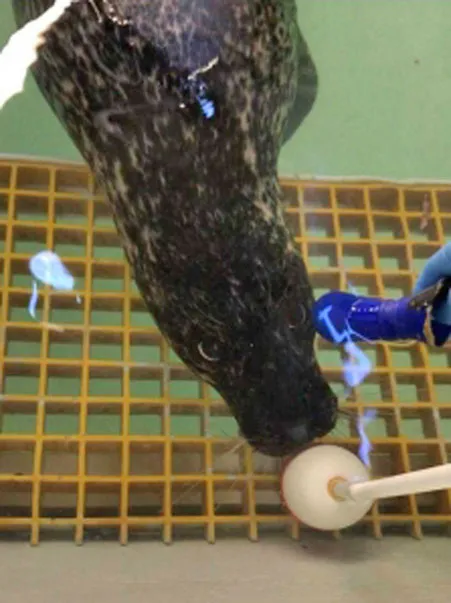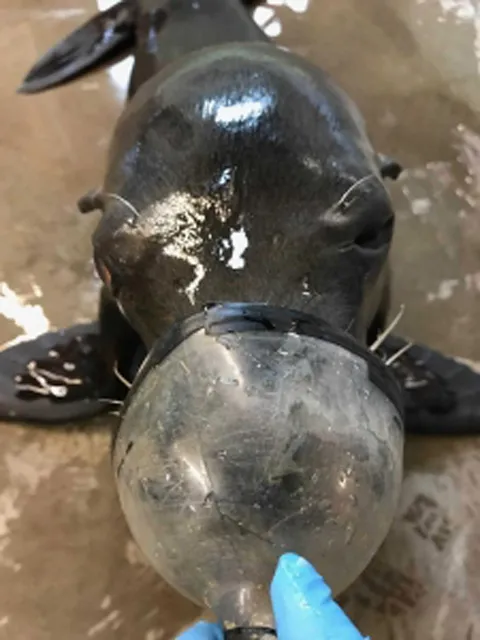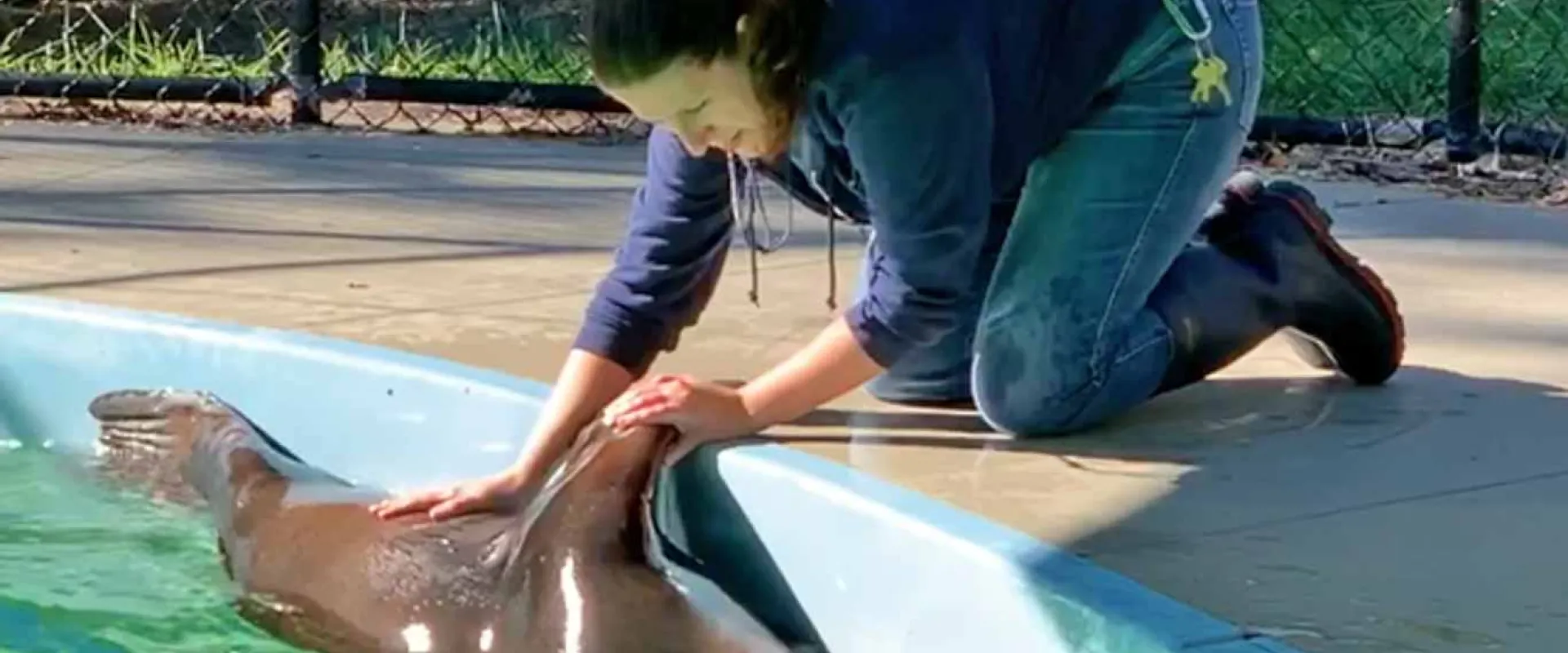Written by Christina Caporale, Rocky Coast Zookeeper
As a Rocky Coast Zookeeper at the North Carolina Zoo, I’m lucky to have the opportunity to work with some of the most amazing animals on the planet, from polar bears, to Arctic foxes, to several species of sea birds. But some of my all-time favorite animals to work with are our pinniped family. Pinniped is the taxonomic order that all seals, sea lions, and walrus belong to. There are 34 species of pinnipeds, and here at the Zoo we have two of those species. We are home to two male California sea lions and two male Atlantic harbor seals. The best part of working with our seals and sea lions is that every single day is a new adventure!

Zookeeper Caporale with a harbor seal during a training session
Most people think that being a zookeeper means you get to play with animals all day. That couldn’t be further from the truth! We start our day with morning feeds and cleaning habitats. This sometimes means we must suit up and go SCUBA diving to the bottom of the water habitats. We dive throughout the year, even when there is snow on the ground. Once all the cleaning is done, we prepare the diets for our animals for the next day. Our animals eat 5-Star restaurant quality fish that is measured out specifically for each individual. We also clean our kitchen every time we use it. Fish scales left on surfaces can leave bacteria behind, which could in turn make our animals sick. Making sure all kitchen areas and buckets are scrubbed to perfection is a must!
My favorite time of the day though, is when we get to train and build relationships with our boys.

Harbor seal training to put his nose on a target
Both seals and sea lions are extremely intelligent, and require a lot of work to keep them challenged throughout the day. We train using positive reinforcement, meaning when they correctly do something we ask, they get something they love. Usually this is fish, but it can be a favorite toy or a rub down from their trainer. Not only do we train our animals in order to keep them mentally and physically fit, but we also train them to participate in their own health care. One behavior that is extremely important for our boys is a voluntary blood draw. We try to get a sample every year to make sure they are staying healthy. We also train our animals to lay out in all different positions so that we can take x-rays or ultrasounds.
Pinnipeds are prone to eye problems as they age and our seals are learning how to stay underwater so we can ultrasound their eyes. Our sea lions are even learning is how to take voluntary injections. We vaccinate our animals just like your pets at home. Our sea lions are trained to line up against our fences behind the scenes and let our vets give them those shots. And just in case we ever do have to anesthetize our animals, they are learning how to put their face in a mask and breathe into it to receive the medication. All of this is based on a mutual trust between us and the animals.

Sea lion participating in training - practicing putting their face in a mask
Having our animals willingly participate in their health care guarantees that these sessions are fun and not stressful for them. Not only does this ensure the safety of our animals during vet procedures, but it also ensures the safety of the staff as well!
